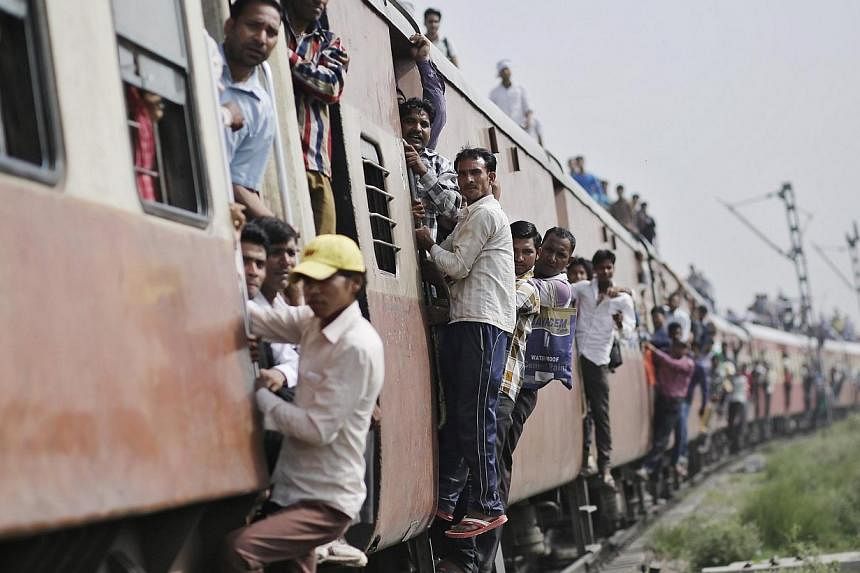NEW DELHI (AFP) - India unveiled plans on Tuesday to open up its railways to foreign investment and introduce the country's first bullet train in a budget for the network closely watched for clues about new Prime Minister Narendra Modi's economic priorities.
The rail finance bill is regarded by economists as setting the stage for the national budget - due on Thursday - in which the right-wing government will lay out keenly awaited reform plans.
The crumbling railways need an "immediate course correction" after years of mismanagement, Railway Minister Sadananda Gowda told parliament as he outlined ambitious plans for the network that carries 23 million people daily.
The plan to allow foreign investment marked a first for the railway.
"I can get many claps from this house by announcing many new projects, but that would be rendering injustice to the struggling organisation," he said in a message that stayed true to Modi's pledge to avoid populist measures.
In a break with the past, Gowda said foreign direct investment (FDI) would be sought for the railways as well as public-private partnerships in all areas except for passenger operations.
"The challenges of tomorrow cannot be met by the tools of yesterday," he said, and require private funds. "We need to explore alternative sources" of funding, he said, as he declared faster trains, improvements to safety of the accident-prone network and improved cleanliness on trains would be priorities.
He proposed India's first bullet train to run on the Mumbai-Ahmedabad track in western India.
Financial analysts had been looking for announcements in the annual railway finance bill for reform measures as a sign that the national budget would contain investor friendly measures.
Gowda's announcement of a string of practical measures to revamp the railway was in keeping with the business-like approach to public enterprises stressed by Modi in his election campaign that brought him to power in May. Modi's Bharatiya Janata Party (BJP), which scored a landslide poll win, had indicated it favours a greater role for private business in overhauling and building new infrastructure such as trains, roads and ports.
Dilapidated transportation has held back growth of Asia's third-largest economy, analysts say. The BJP had said modernisation of the over-burdened, money-losing train network topped its agenda for infrastructure-building.
To help fund new wagon purchases, modernise track, revamp lines and improve safety, the government last month hiked passenger fares by 14.2 per cent and freight rates by 6.5 per cent - the steepest rise in 15 years and a politically controversial move.
A public outcry saw the government later partially climb down over city commuter fare hikes, underscoring the difficulty in reducing subsidies in a tough economic environment where hundreds of millions of people live in dire poverty.
Gowda said the rail fare hike was "bitter medicine in the beginning but tastes like nectar in the end".
The economy is growing by just under five per cent annually, far below the near double-digit pace notched up a few years ago. Analysts say as much as US$500 billion (S$624 billion) must be invested over the next decade to overhaul the network.

